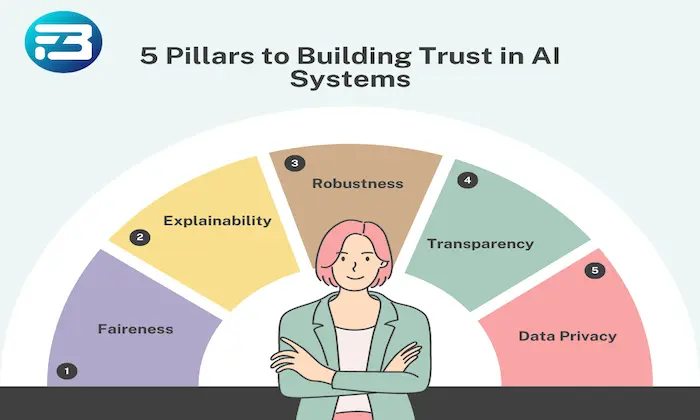What governance processes should a mature AI data partner have in place, and how to check them?
Data Governance
Enterprise AI
AI Compliance
Robust governance processes are crucial for AI data partners to ensure ethical, high-quality data that meets compliance standards. These processes are not just about meeting legal obligations as they are fundamental to building trust and enhancing the reliability of AI systems. Here’s a detailed look at the governance processes that define a mature AI data partner and how you can evaluate their effectiveness.
Key Governance Processes for AI Data Partners
- Ensure Ethical Data Collection: Ethical data collection is about acquiring data in a way that respects individual rights and adheres to legal standards. With increasing scrutiny over data privacy laws like GDPR and CCPA, maintaining ethical standards is vital to avoid legal penalties and enhance brand reputation. This involves obtaining informed consent, ensuring no underage contributors, and implementing transparent data handling practices.
- Implement a Robust Quality Assurance (QA) Framework: A strong QA process uses automated checks followed by human reviews to ensure dataset accuracy and reliability. High-quality data is crucial for effective AI model performance like poor QA can lead to biases and flawed insights. A comprehensive QA system should focus on metrics like error rates and completeness, with multi-layered checks including both automated validation and manual reviews by specialists.
- Establish Compliance and Auditing Processes: Compliance processes ensure all data practices align with regulations, while audits verify adherence. Non-compliance can cause significant financial and reputational damage. An effective compliance framework involves detailed records of consent and data provenance, backed by regular internal audits to identify gaps and facilitate corrective actions. Digital consent management systems are examples of tools that streamline tracking and verification.
- Monitor Bias and Fairness: Bias monitoring involves assessing datasets for demographic biases and ensuring inclusivity. Bias in AI can perpetuate inequalities and lead to unethical outcomes. Continuous monitoring through statistical tools helps identify potential biases, allowing for adjustments in sampling strategies to ensure balanced representation.
Evaluating Governance Processes
When selecting an AI data partner, it's essential to evaluate their governance processes comprehensively:
- Document Review: Examine documentation related to data collection, consent processes, QA protocols, and compliance audits. Look for clear, comprehensive, and accessible audit trails detailing data provenance and consent, alongside QA methodologies.
- Third-Party Audits: Engage independent auditors to objectively review the partner’s compliance and governance practices. A reputable audit will assess adherence to ethical guidelines and regulatory frameworks, providing a clear evaluation of the partner’s processes.
- Stakeholder Feedback: Gather feedback from contributors, clients, and internal teams interacting with the AI data partner. Positive feedback on transparency, responsiveness, and ethical practices signals a strong governance framework.
- Performance Metrics: Evaluate performance metrics related to data quality, compliance breaches, and bias detection. Indicators of effective governance include consistently low error rates, minimal compliance issues, and proactive bias monitoring.
Ensuring Trust Through Effective Governance
Effective governance processes in AI data partnerships encompass ethical data collection, robust QA frameworks, compliance mechanisms, and vigilant bias monitoring. FutureBeeAI exemplifies these practices by operating not just as a data vendor, but as a strategic partner. With our proprietary Yugo platform, we ensure comprehensive data management like covering collection, annotation, QA and compliance while fostering trust through transparency and ethical standards. For organizations looking to enhance their AI systems, partnering with FutureBeeAI means accessing a reliable, ethical, and high-quality data ecosystem.
Smart FAQs
Q. What are the consequences of poor governance in AI data partnerships?
A. Poor governance can lead to legal penalties, compromised data integrity, and loss of stakeholder trust, ultimately affecting the performance and reliability of AI models.
Q. How can organizations ensure their AI data partner adheres to ethical standards?
A. Organizations can require regular audits, review documentation for transparency, and engage third-party evaluators to assess compliance with ethical guidelines.
What Else Do People Ask?
Related AI Articles
Browse Matching Datasets
Acquiring high-quality AI datasets has never been easier!!!
Get in touch with our AI data expert now!








